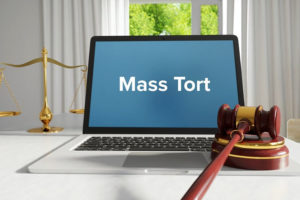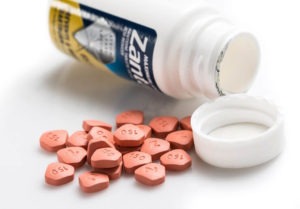Nexium, a proton-pump inhibitor (PPI) used to manage heartburn and acid reflux, has a number of documented side effects and linked diseases. While the medication remains on the market, there is ongoing litigation linked to kidney damage potentially caused by long-term use of the drug.
If you believe you have injuries caused by using Nexium or a similar drug, you should consider discussing your legal options with a mass torts lawyer or an attorney familiar with ongoing defective drug cases. This is especially true if your injuries are related to kidney function or renal health.
What Kidney Diseases Are Linked to Nexium Use?
A number of studies link long-term PPI use and lasting kidney damage. This includes studies published by both JAMA Internal Medicine and the Journal of the American Society of Nephrology. These studies demonstrate a significant risk of kidney damage for those who take Nexium or another PPI for long-term use of more than 30 days. This could be any formulation of these medications, including those available over the counter.
Those with kidney damage possibly linked to PPI use have diagnoses that include:
- Chronic kidney disease (CKD)
- Kidney failure
- End-Stage Renal Disease (ESRD)
- Acute tubulointerstitial nephritis
- Acute interstitial nephritis (AIN)
Some patients who already had a CKD diagnosis experienced worsening of their condition. Others endured kidney injuries without symptoms. One study found that more than half of patients who suffered kidney injuries were asymptomatic while taking the medication but suffered serious enough kidney damage to later receive a diagnosis.
Bone Density Concerns Associated With Nexium
In 2012, a lawsuit was filed, and a mass tort was organized against Nexium manufacturers because of concerns over loss of bone density. This multidistrict litigation ended in favor of the drug maker in 2017 and was officially closed. However, some users continue to report this health effect as a significant concern, as it could lead to bone fractures or broken bones.
For a free legal consultation, call (725) 900-9000
Common Side Effects Caused by Nexium
The most commonly reported side effects of Nexium, which are usually minor, include:
- Headache
- Abdominal pain
- Constipation
- Decreased appetite
- Diarrhea with or without nausea
- Dry mouth
- Gas
- Bone fracture risk
If you suffered any of these adverse effects because of Nexium, our team will help you pursue the compensation you deserve.
What Is Nexium?
Nexium, also called esomeprazole, belongs to the class of drugs called proton pump inhibitors. They are used to reduce the acid in the stomach to eliminate symptoms from heartburn, gastroesophageal reflux disease (GERD), stomach ulcers, and other conditions. Other similar drugs include Prilosec, Protonix, and Dexilent. You may have heard Nexium referred to as “the purple pill.”
Nexium comes in four formulations. The allegations raised by injured users are the same across all four formulas:
- Prescription Nexium: The first formula available, a prescription drug manufactured by AstraZeneca and prescribed for long-term treatment of GERD, heartburn, and related issues.
- Generic Nexium: Known as esomeprazole, there are several manufacturers that make generic prescription-strength Nexium.
- OTC Nexium 24HR: Pfizer manufactures an over-the-counter version of Nexium.
- Generic Nexium 24HR: Several manufacturers make a generic version of Nexium 24HR for retailers to sell as store brands.
Click to contact our personal injury lawyers today
What do You Need to Know About the Pending Nexium Lawsuits?
If you believe you have a kidney injury or other serious health effects caused by Nexium use, you should consider discussing your options with a product liability lawyer as soon as possible. The Nexium/PPI mass tort is well underway, and you may only have a limited time to join.
As of November 2023, the mass tort, MDL 2789, IN RE: Proton-Pump Inhibitor Products Liability Litigation (No. II), is still underway. The U.S. Panel on Multidistrict Litigation consolidated these lawsuits into multidistrict litigation (MDL) against the manufacturers of several PPI medications, including Nexium, Prilosec, Prilosec OTC, and others.
Some plaintiffs have already accepted settlements in this MDL and negotiations are ongoing as it also proceeds through the MDL process. The U.S. Judicial Panel on Multidistrict Litigation reported 12,826 pending actions as of November 16, 2023.
Complete a Free Case Evaluation form now
How Does Multidistrict Litigation Work?
When the courts consolidate cases into an MDL, it allows the plaintiffs to proceed with discovery, pre-trial motions, and the initial bellwether cases together. This saves time and money and prevents the lower courts from being clogged with thousands of similar cases.
As each side builds a compelling case and the bellwether trials begin, everyone better understands how a jury will react to the evidence supporting these cases. This often leads to global or tiered settlement offers, and many cases end this way. Others end with the plaintiff dropping their case. Following the bellwether trials, any case remaining in the MDL can return to its original jurisdiction to go to trial.
What Should You do If You Have Health Concerns After Taking Nexium?
If you have diagnosed kidney concerns or other health issues after taking Nexium, you should seek medical attention, continue your treatment, and follow your doctor’s advice. At the same time, you should consider consulting an attorney handling these cases to learn more about your rights and legal options.
At Van Law, we are reviewing these cases with victims now. We will assess your options based on the medical advice you’ve received and your documented Nexium use. You could qualify to join the mass tort or pursue compensation on your own.
As a mass tort, these cases are proceeding similarly to the Bard PowerPort catheters case, which our attorneys are also handling. While research and reports from injured individuals and doctors seem to confirm serious concerns about them, Bard PowerPort devices remain approved by the U.S. Food and Drug Administration (FDA).
How Our Firm Helps Nexium Patients Pursue Compensation
If you bring your Nexium case to us, we will:
- Speak to healthcare professionals to link your Nexium use to your injury or illness
- Explain the results of any clinical trials related to your case
- Prove that the types of PPIs you took are associated with adverse health conditions
- Answer any questions you have about negative drug interactions and how they could qualify you for a legal case
- Explain the periods of time you’re allotted to file your case
We’ve handled cases similar to yours, so we’re familiar with mass torts law.
Discuss Your Nexium Health Effects With Our Team for Free Today
Van Law is representing injured victims who took Nexium and now have significant kidney concerns. We may prepare and file a lawsuit on your behalf or help you participate in the ongoing mass tort. We are here to help you weigh your options and navigate the legal process.
Contact us now to start with a free initial consultation. Our team will assess your case and help you understand your legal options.
No obligation consultations are always free.
Let Us Help You! Call Now: (725) 900-9000Client Testimonials
Related Videos















